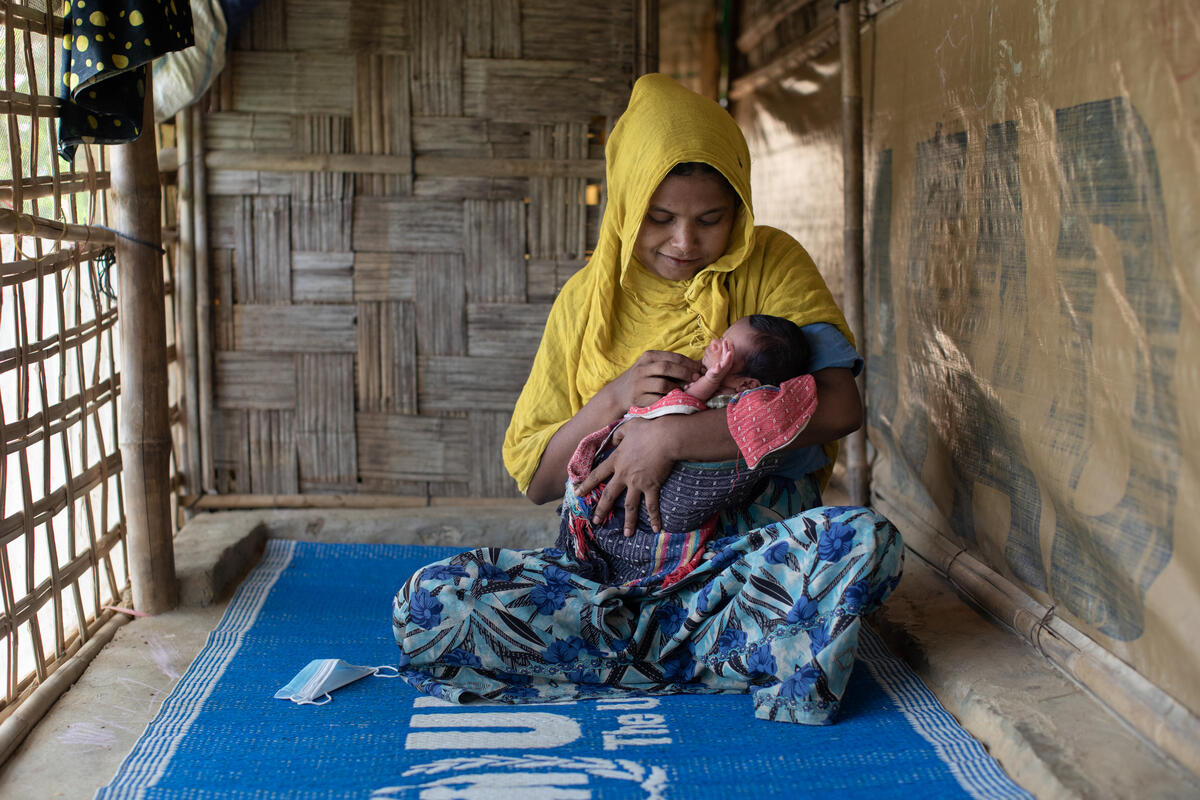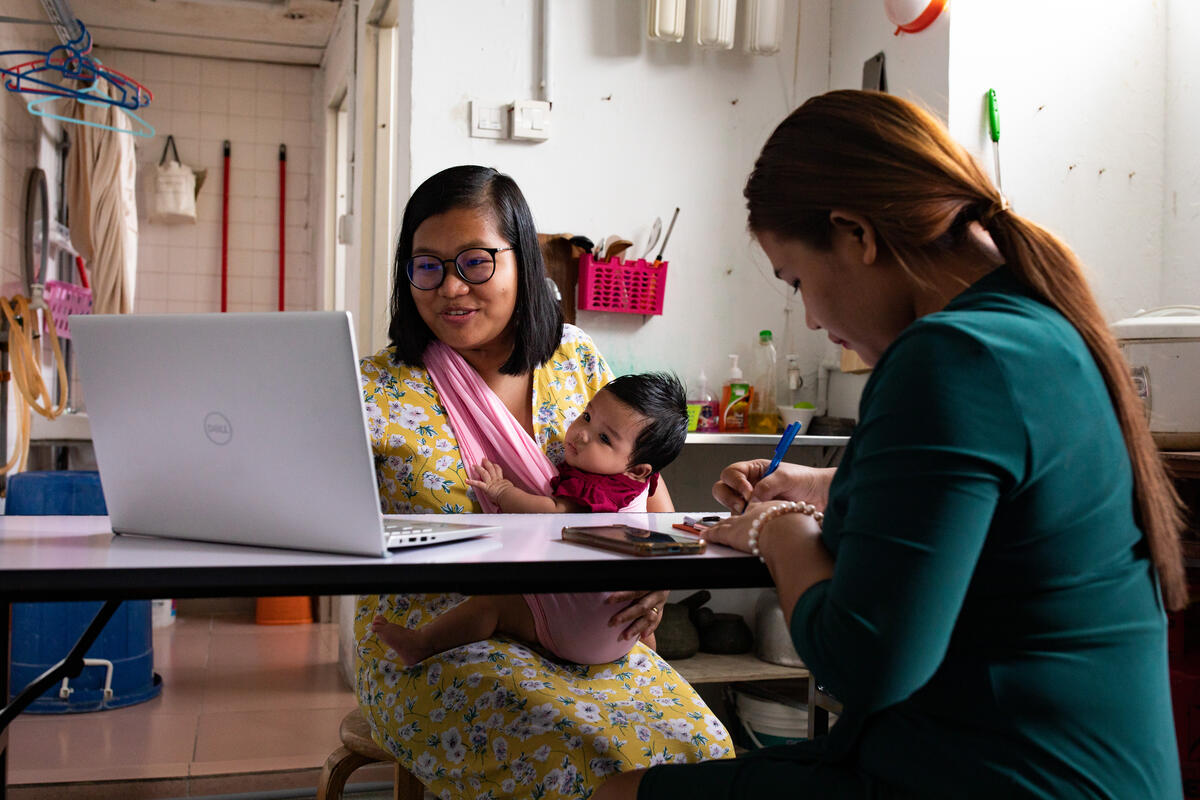Bangladesh: UNHCR & partners work to contain outbreak of diarrhoeal disease
Bangladesh: UNHCR & partners work to contain outbreak of diarrhoeal disease

With more than half a million Rohingya refugees now in Bangladesh, UNHCR, the UN Refugee Agency, Bangladesh public health authorities and other partners are working on several fronts to treat patients and contain an outbreak of diarrhoeal disease.
A 20-bed diarrhoea treatment centre opened yesterday (Monday) in Kutupalong Refugee Camp in the southeast of the country, where the refugees who have been living there since 1992 have taken in thousands of newcomers. UNHCR has gathered national and international NGOs under the banner of the government’s Refugee Health Unit to run the centres.
By the end of this week, we will have a total of 80 beds in diarrhoea treatment centres in three locations, and we plan to open two more centres next week. As of today, our staff, working with refugee volunteers, who will fan out into the Kutupalong Refugee Camp and nearby informal settlements to find people who might be sick but have not sought treatment.
UNHCR this week also plans to open medical consultation centres with attached oral rehydration “corners” throughout the huge (2,000-acre or 809-hectare) Kutupalong Extension Site where many of the estimated 507,000 refugees who have arrived since 25 August are now congregating to receive assistance. This is a move to bring medical care closer to those in need. At these smaller centres, refugees found to be suffering from moderate dehydration can be treated immediately, and those who require more intense therapy can be referred to the larger diarrhoea treatment centres.
UNHCR is also supporting an effort by the Ministry of Health to administer cholera vaccinations to refugees. Cholera is endemic in Bangladesh and can easily spread any time hundreds of thousands of people live in close proximity without proper sanitation.
There are as yet no firm statistics on cases of acute watery diarrhoea among the newly arrived refugees, and we are taking action to try to prevent severe illness and deaths. We have seen an increasing trend of diarrhoeal disease cases, including cases of diarrhoea with severe dehydration. So far, refugees with these conditions have been treated at clinics run by UNHCR and other agencies, and at local public health facilities.
Measures to prevent the spread of disease and cut the rate of severe illness and death also include installation of 32 shallow tube wells, and 250 latrines so far, which UNHCR accomplished with the help of partners. It is vital to provide clean water so that people do not drink from or bathe in contaminated ponds and streams.
In another move to speed up delivery of aid to refugees, UNHCR, working with Bangladesh’s Refugee Relief and Repatriation Commission (RRRC), is beginning a family count to collect data on newly-arrived refugees and their needs. Some 100 freshly-recruited enumerators will begin going shelter-to-shelter on Wednesday to list each day some 1,000 families, which should include about 5,000 individuals.
Each family will receive a card bearing the RRRC logo. The process will enable the government, UNHCR and other agencies – that decide to participate – to target aid to the right people. The process will also give a first indication of refugees with special protection needs, such as pregnant women, breast-feeding mothers, people with disabilities, or elderly refugees on their own.
For more information on this topic, please contact:
- In Bangkok, Vivian Tan, [email protected], +66 818 270 280
- In Cox's Bazaar, Yante Ismail, [email protected], +880 17 5423 8067
- In Cox’s Bazaar, Kitty McKinsey, [email protected], +880 17 0836 7884
- In Geneva, Andrej Mahecic, [email protected], +41 79 642 9709
- In Geneva, Duniya Aslam Khan, [email protected], +41 79 453 25 08








